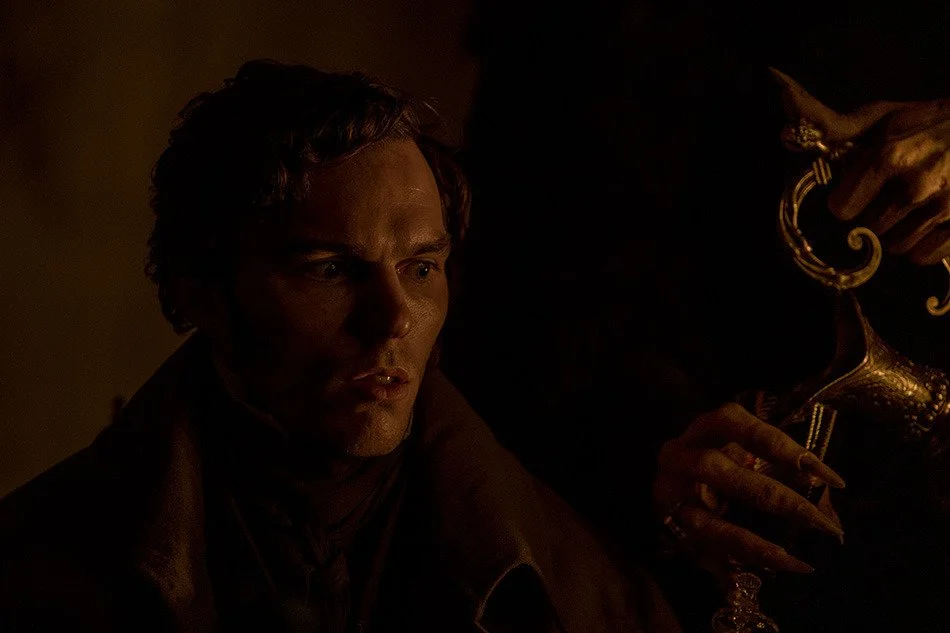#107: Nosferatu (2024)
Release Date: December 25th, 2024
Format: Theater (Cinemark at The Pike Outlets in Long Beach, CA)
Written by: Robert Eggers
Directed by: Robert Eggers
3.5 Stars
Words I would use to describe F.W. Murnau’s 1922 film, Nosferatu: Evocative, expressionistic, stark, beautiful, haunting, Germanic, silent.
Words I would use to describe Robert Eggers’ 2024 remake: unrelenting, gruesome, driving, ambitious, romantic, punishing, inspired.
Wise of him to beat his own path tonally and stylistically. It’s obvious the reverence Eggers has for his source material, but it’s no small task to remake a classic, let alone one of the most recognizable movies in film history.
Having seen Eggers’ brilliant 2015 film The Witch, which was a minimalistic slow burn, I expected him to take a similar approach to his Nosferatu. I was wrong. Eggers unleashes a driving orchestral score and unrelenting camera movement. Like a haunted spirit, his lens floats, pans, and zooms with nightmarish intensity. It’s as if Eggers imagined all of the technical limitations Murnau had 100 years ago and sets out for vengeance. Nosferatu (2024) is an ambitious, lush, technical monster.
As for the story, Eggers stays more or less loyal to the original. Ellen and Thomas are a young married couple in Wisborg, Germany in 1838. Thomas is a real estate agent, and his employer wants to send him on a business trip to Transylvania to sell a large German estate to the mysterious Count Orlok. Unbeknownst to Thomas, his employer is an occultist and Count Orlock is in fact the infamous vampire, Nosferatu. Ellen has haunting visions and begs Thomas not to go, but the financial and professional rewards prove to be too alluring, and he sets off across the German countryside on horseback to find Count Orlock.
It was at this point in the movie where I realized, oh, Eggers is going to have fun with this movie. He’s going to use on-location sets, with Romani villages and huge, gothic castles. He’s going to use real wolves and real rats. He’s replacing expressionism with bold, European romanticism.
And if I have a critique, it would be that I wanted him to go even further. I understand that it’s an impossibility from the studio’s perspective, but what if Eggers was given the green light to translate his script into German and cast German actors? The original Nosferatu was a low-budget German movie, made exclusively for German audiences in the wake of World War I, which gave it a haunting, exotic quality for American audiences. A bit of this haunting exoticism is lost in Eggers’ version, watching American actors mimic British accents in a story set in 19th century Germany. But I get it, we’re no longer in the auteurist Hollywood system of the 1970s anymore. Robert Eggers’ Nosferatu cannot fully be Francis Ford Coppola’s Apocalypse Now, as much as I want it to embrace that spirit of artistic reckless abandon.
But considering the constraints of big budget filmmaking in 2024, Nosferatu is a bit miraculous. A disturbingly violent R-rated vampire movie shot in eastern Europe on 35mm? What a win for horror film lovers, and film lovers in general.
Supposedly Eggers had been wanting to make Nosferatu for the past ten years, as his follow-up to The Witch. You can see his pent up enthusiasm on the screen. His Nosferatu wants to infect your soul and drink your blood.
